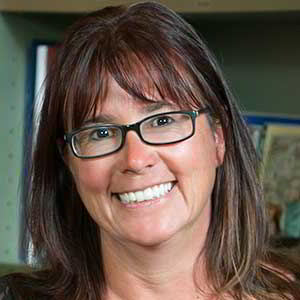Refugee resettlement in Reno
Northern Nevada International Center approved by U.S. Department of State to resettle refugees not just from Syria and Iraq but also from Colombia, the Democratic Republic of the Congo, Ethiopia, Eritrea, Sudan and South Sudan.
The Syrian conflict and its ensuing exodus of close to four million people sparked one of the largest humanitarian responses since World War II. To an American audience - which can sometimes be accused of indifference to global crises - it was the picture of Aylan Kurdi that humanized the suffering of the Syrian people. The lifeless body of the little boy washed ashore evoked a sharp increase, both in our country's leadership and on the grassroots level, in the desire to do something.
After Aylan's image was published, President Obama increased the ceiling for refugee resettlement in the United States to 85,000 for fiscal year 2016 and to 100,000 in FY 2017, up from 70,000 in 2015. Mayors around the country discussed creating or expanding refugee resettlement in their cities. Local community activists were ready to assist refugees in any way possible. People wanted to help.
As executive director of the Northern Nevada International Center, I was approached by some of these groups in the aftermath of Aylan's ill-fated journey across the Mediterranean Sea. We prepared an application to become a refugee resettlement site under one of the nine Voluntary Agencies, the U.S. Committee for Refugees and Immigrants. I visited the robust refugee resettlement programs in Las Vegas, managed by Catholic Charities and the African Development Center. We convened meetings about how to best prepare our community to resettle refugees, and we submitted our application to the U.S. Department of State on November 13, 2015 at around 1:45pm, just 15 minutes prior to the deadline.
A few hours later, and in a city far away from Reno, a group of terrorists changed our trajectory as they killed more than 130 people in separate attacks in Paris, France. With these incidents, refugee resettlement in the United States took on a different tone. It transformed from a humanitarian effort we Americans could participate in to a national security threat. Our application to resettle refugees not just from Syria and Iraq but also from Colombia, the Democratic Republic of the Congo, Ethiopia, Eritrea, Sudan and South Sudan turned from a non-event into a political hot topic. Half of the country's governors proclaimed publicly that they would not allow existing refugee resettlement sites to accept Syrian refugees because of the potential danger to U.S. communities. Pundits knocked on our door, and concerned citizens voiced angry opposition to our application, worrying that young Syrian men would infiltrate our country.
Nothing could be further from the truth, and here are the reasons why:
1. The United States has the most robust and layered refugee vetting process of any country. It takes an average of more than 20 steps to apply and 18 to 24 months for a refugee application to be processed.
2. Of all the different ways in which someone can come to the United States, entering as a refugee is the longest and most difficult. Worldwide, it takes an average of 17 years for refugees to find permanent resettlement.
3. The United States has a long history of resettling refugees. In fact, our country has resettled three million people since 1970, more than any other country in the world.
4. Unlike immigrants and asylum seekers in Europe, the United States truly integrates and assimilates international newcomers. With the exception of a tiny number of homegrown terrorists, we have mastered the idea of making Americans out of foreigners.
It took three months for our application to be approved by the U.S. Department of State. We received notification of provisional acceptance to become a refugee resettlement site on February 10, 2016.
Our next steps will be to offer a series of speaker forums to educate the Reno community on what refugee resettlement entails - from vetting refugees to providing a safe place to live here in northern Nevada. It will take our entire community to assure people who may have lingered in refugee camps for years that they can finally feel safe. I know that Reno is welcoming, open and we have the capacity to accept families looking for a new beginning.
A native of Argentina and a citizen of Switzerland and the United States, Carina Black has lived in the U.S. since 1987. She received her Ph.D. from the University of Nevada, Reno in 1997 in comparative politics. She is the first Executive Director of the Northern Nevada International Center (NNIC). As an adjunct faculty member at the University, Black has taught courses in global studies, world politics, comparative politics, democratization, international organizations and Latin American politics. At the NNIC, Black has focused her energies on growing programs through the US Department of State and USAID.





